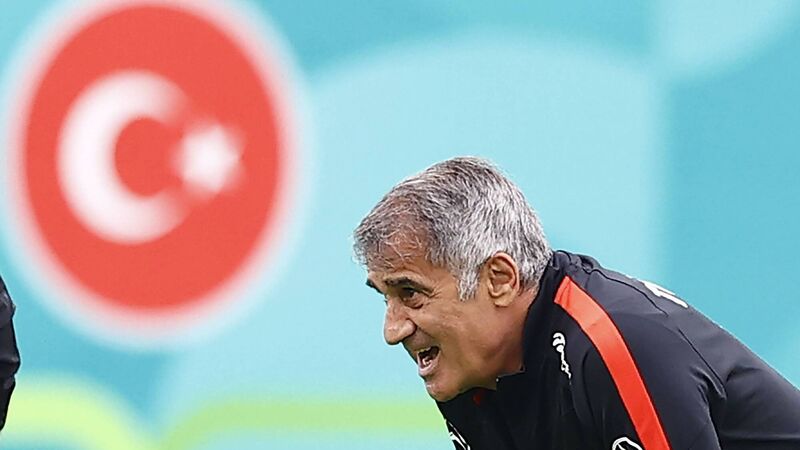Tommy Martin: The Euros’ sleek perfection is gone, replaced by something a little quirkier

Head coach of Turkey Senol Gunes leads training session of his team ahead of EURO 2020. Picture: Cuneyt Karadag/Anadolu Agency via Getty Images
Try from €1.50 / week
SUBSCRIBE
Head coach of Turkey Senol Gunes leads training session of his team ahead of EURO 2020. Picture: Cuneyt Karadag/Anadolu Agency via Getty Images
Time, at last, for the tournament that insists on calling itself Euro 2020. Big, badly-assembled and a bit weird-looking, like a flat pack wardrobe designed by Salvador Dali. The bloated folly of a generation of blazered schemers. The right tournament at the wrong time in mostly the wrong places.
Let the games begin!
Already a subscriber? Sign in
You have reached your article limit.
Annual €130 €80
Best value
Monthly €12€6 / month
Introductory offers for new customers. Annual billed once for first year. Renews at €130. Monthly initial discount (first 3 months) billed monthly, then €12 a month. Ts&Cs apply.
Newsletter
Latest news from the world of sport, along with the best in opinion from our outstanding team of sports writers. and reporters
Newsletter
Latest news from the world of sport, along with the best in opinion from our outstanding team of sports writers. and reporters
Thursday, February 12, 2026 - 10:00 PM
Thursday, February 12, 2026 - 6:00 PM
Thursday, February 12, 2026 - 5:00 PM

Select your favourite newsletters and get the best of Irish Examiner delivered to your inbox
© Examiner Echo Group Limited